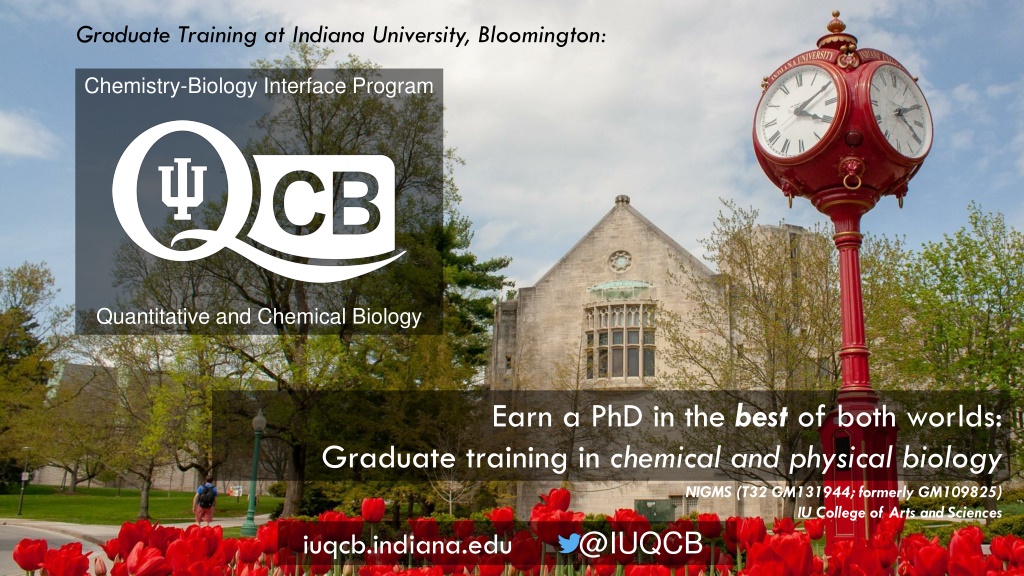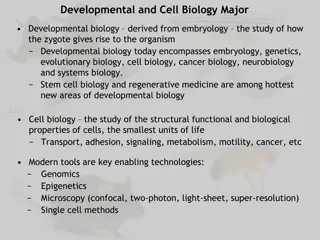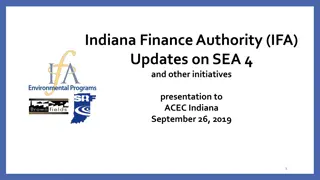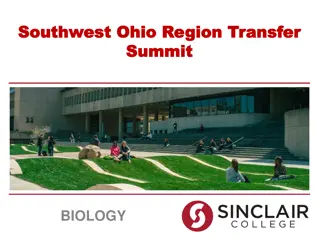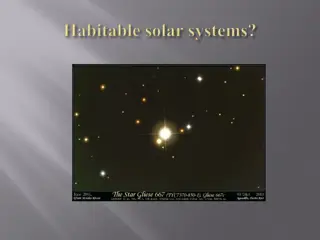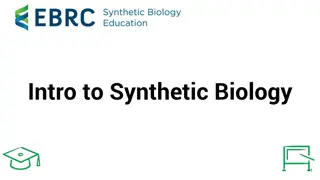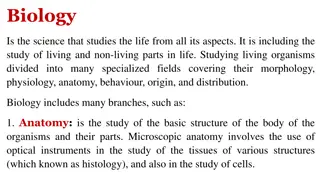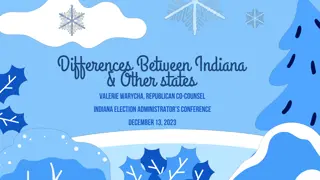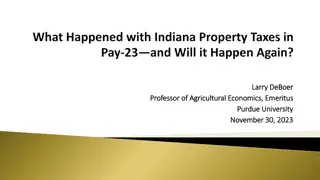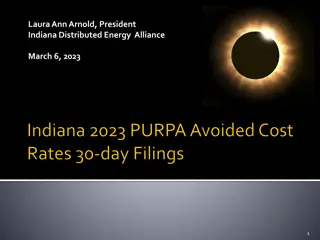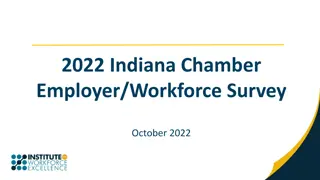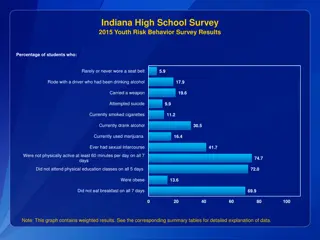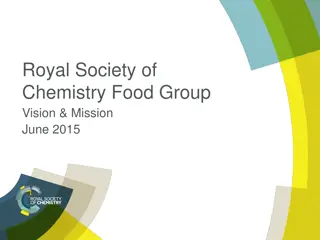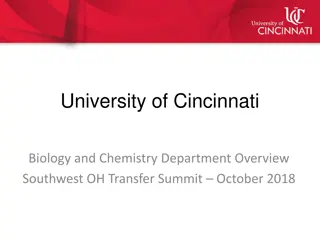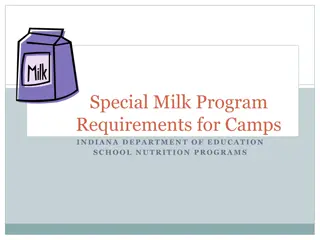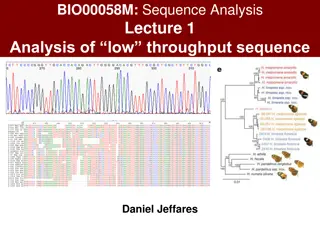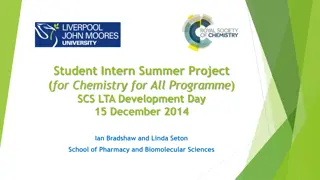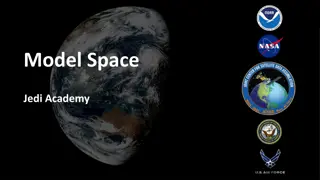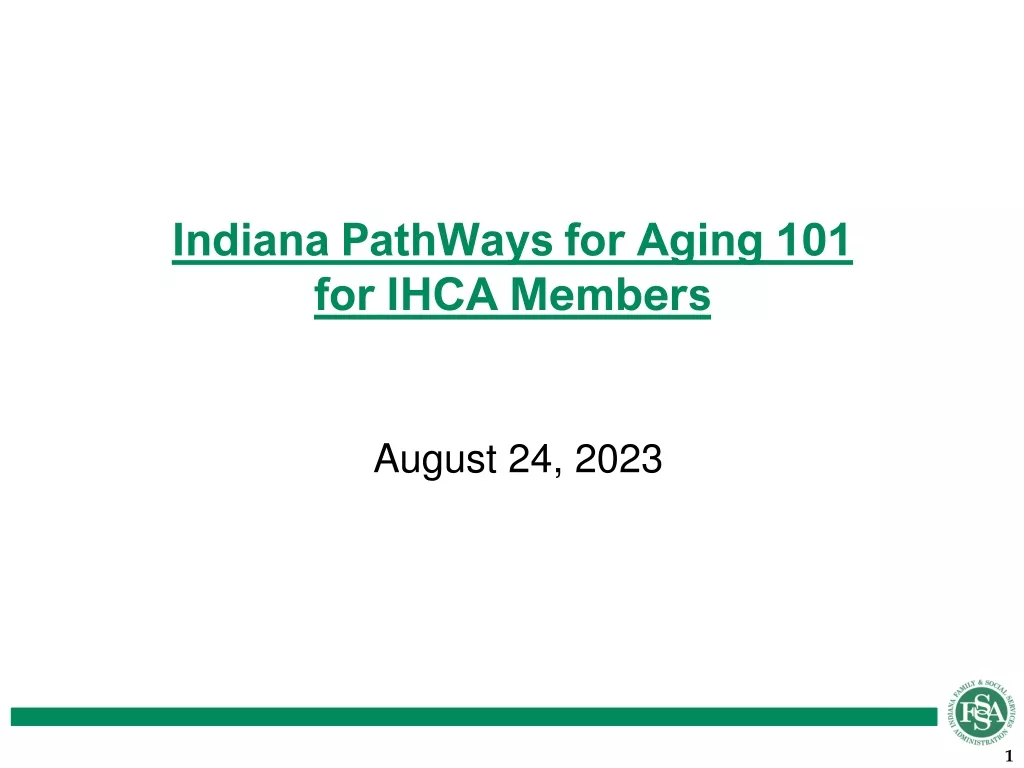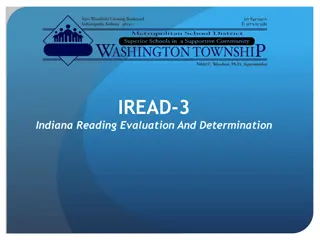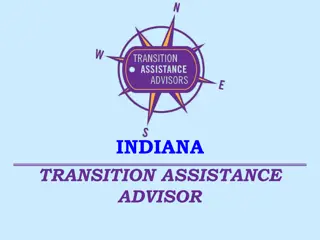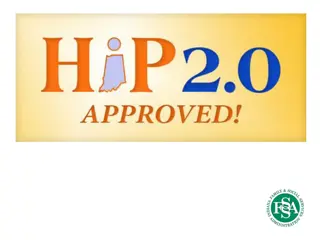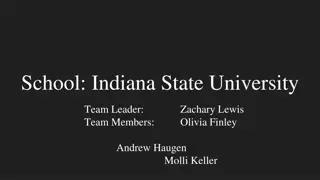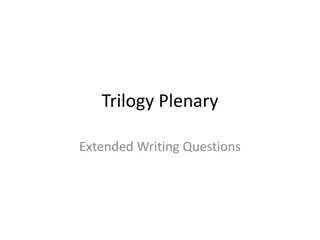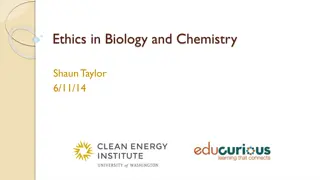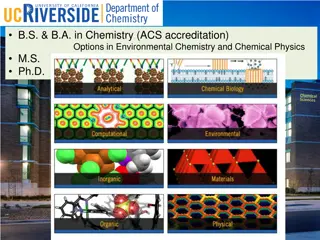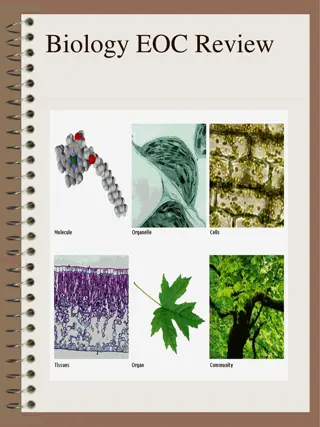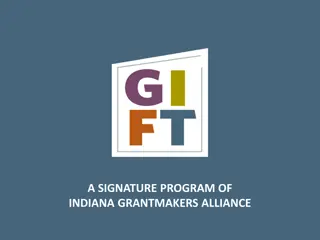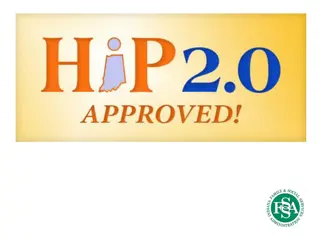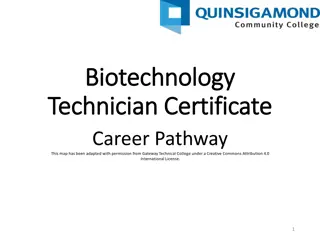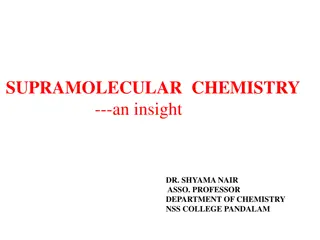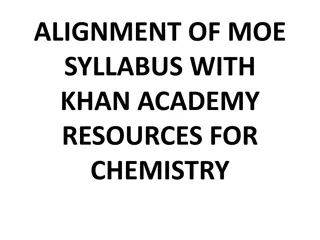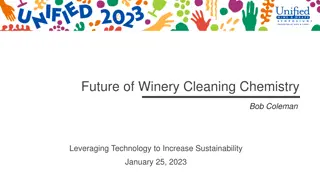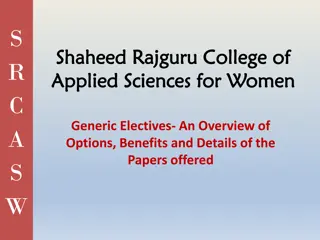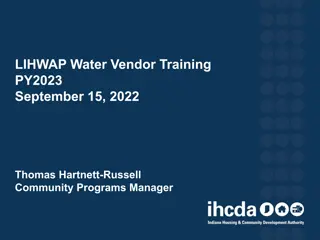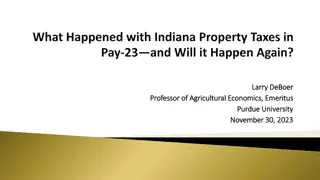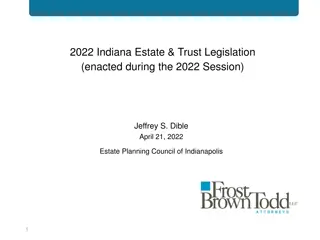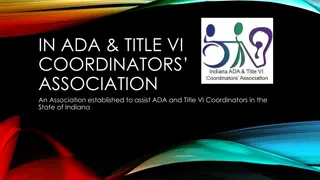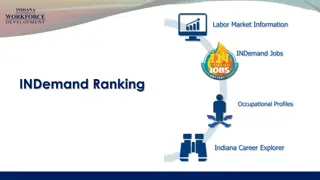Chemistry-Biology Interface Program at Indiana University
Explore the Chemistry-Biology Interface Program (QCB) at Indiana University, Bloomington, offering a unique interdisciplinary graduate training experience. Learn about the program's objectives, faculty trainers, curriculum, and fellowship opportunities. Gain a deeper understanding of how QCB prepares students for careers spanning traditional disciplines. Discover a valuable NIH-funded training program that integrates chemical and physical biology for a comprehensive educational experience.
Download Presentation

Please find below an Image/Link to download the presentation.
The content on the website is provided AS IS for your information and personal use only. It may not be sold, licensed, or shared on other websites without obtaining consent from the author. Download presentation by click this link. If you encounter any issues during the download, it is possible that the publisher has removed the file from their server.
E N D
Presentation Transcript
Graduate Training at Indiana University, Bloomington: Chemistry-Biology Interface Program Quantitative and Chemical Biology Earn a PhD in the best of both worlds: Graduate training in chemical and physical biology NIGMS (T32 GM131944; formerly GM109825) IU College of Arts and Sciences iuqcb.indiana.edu @IUQCB
What is QCB? A National Institutes of Health (NIH)-funded graduate training program that provides value- added educational opportunities to students in nearly all areas of chemistry who chose a graduate advisor who is also a trainer in the program. Program objective: To provide a broad, interdisciplinary graduate training experience on the biological side of chemistry, superimposed on deep, disciplinary training in your major (e.g., organic, inorganic, analytical, materials, ChemBiol). Provides exposure to the diversity of the QCB student cohort and presents real opportunities for collaboration and integration. Also, formal leadership opportunities. GOAL: Help prepare you for a career that will likely span traditional disciplines. iuqcb.indiana.edu @IUQCB
QCB Faculty Trainers in Chemistry We have 35 trainers with appointments in Chemistry (18), Molecular and Cellular Biochemistry (MCB; 4), Biology (6), and Physics (1), and from the Cancer, Cell and Developmental Biology (3) and the Neuroscience (3) Programs. Pan-campus program run by a Steering Committee (Giedroc, Director; Pohl, co-Director). 18 of the QCB trainers are derived from most areas of Chemistry (hosted trainee): Analytical: Baker, Clemmer, Jacobson, Thielges Chemical Biology: Dann, Gerdt, Giedroc, Lewis, Schlebach Inorganic: Zaleski Materials: Douglas, Dragnea, Flood, Yu Organic: Brown, Cook, Pohl, Van Nieuwenhze iuqcb.indiana.edu @IUQCB
What is QCB? Organized in 2011 with internal funding; first cycle of NIH support 2014-2019; second (current) cycle, 2019-2024, matched with College of Arts & Sciences support Set up as an IU Graduate School-approved minor in Chemical and Physical Biology (CPB), and students typically take this sequence in their second year CHEM 680 (1.5 cr): Introduction to QB and measurement (Giedroc) CHEM 681 (1.5 cr): Introduction to Chemical Biology I (Van Nieuwenhze) CHEM 689 (1 x 2 cr): QCB Journal Club Electives (3 cr) iuqcb.indiana.edu @IUQCB
QCB Fellowship Competition Held in late April to early May of a student s first (or second) year. We support rising second-year students for two years, rising third year students for one year: $27,500. We draw applicants from all six feeder graduate programs. Make 3-5 awards per year **In order to be eligible for the fellowship competition, you must have completed three research rotations and you are a US citizen/resident alien (this is a requirement for NIH training programs). Why? Chemistry has an opt-in rotation program (consistent with other feeders): Three 3-week rotations: September-October; October; November Students join groups in early December with all Chemistry students iuqcb.indiana.edu @IUQCB
QCB Student Cohort This is student-led and student-organized training program (see website!!!!) QCB Ambassadors (two student leaders) who drive the student-run activities. Currently Liam Scott (Dragnea group) and Rachel Fadler (Flood group) QCB Evenings (4 per year) QCB-invited seminar speaker program (2 per year) Watanabe Symposium in Chemical Biology (Saturday, October 10, 2020; postponed) Career Symposium (Aug 2021) iuqcb.indiana.edu @IUQCB
Questions? David Giedroc, giedroc@indiana.edu Nikki Pohl, npohl@indiana.edu Administrative support Elizabeth Kang: elkang@iu.edu Maria Sievers Perotti: sieversm@indiana.edu QCB Ambassadors (CY20) Liam Scott: lwscott@iu.edu Rachel Fadler: rfadler@indiana.edu iuqcb.indiana.edu @IUQCB
